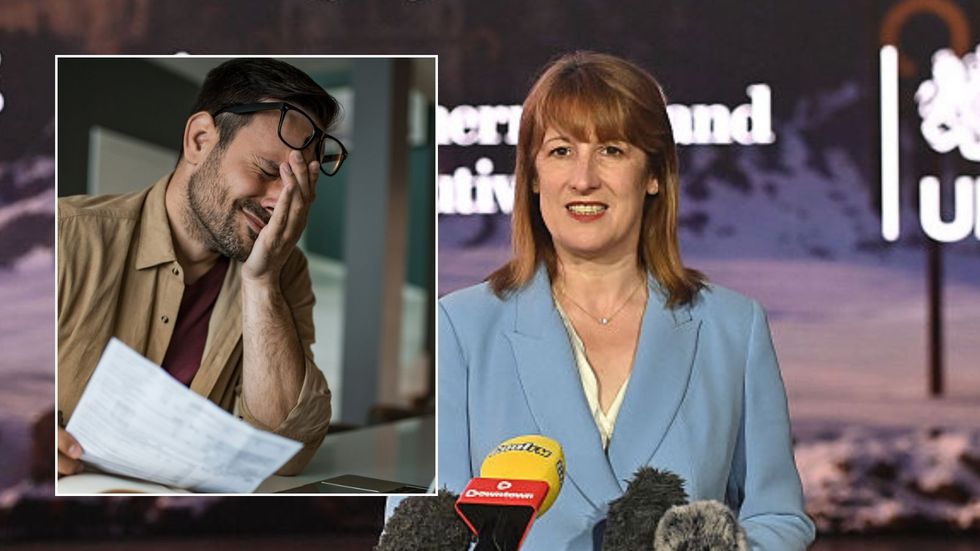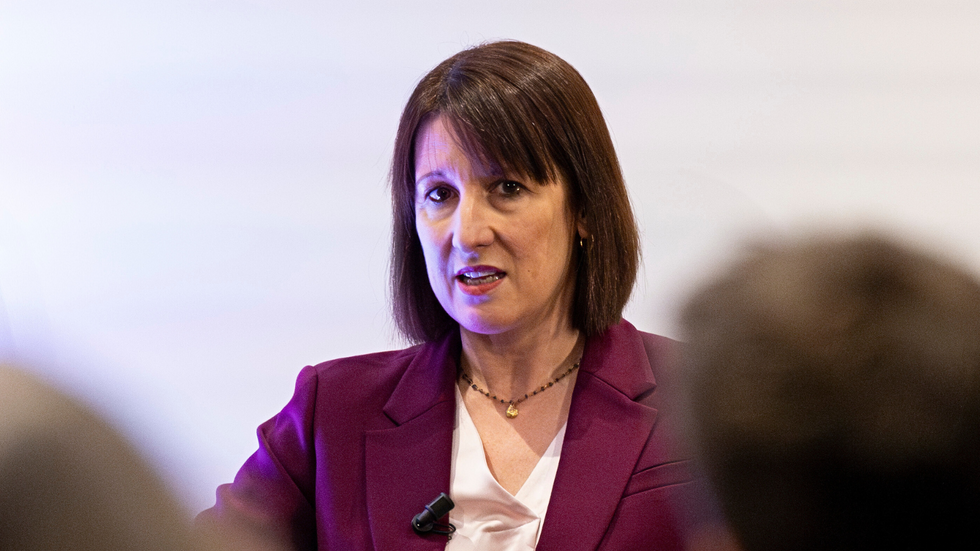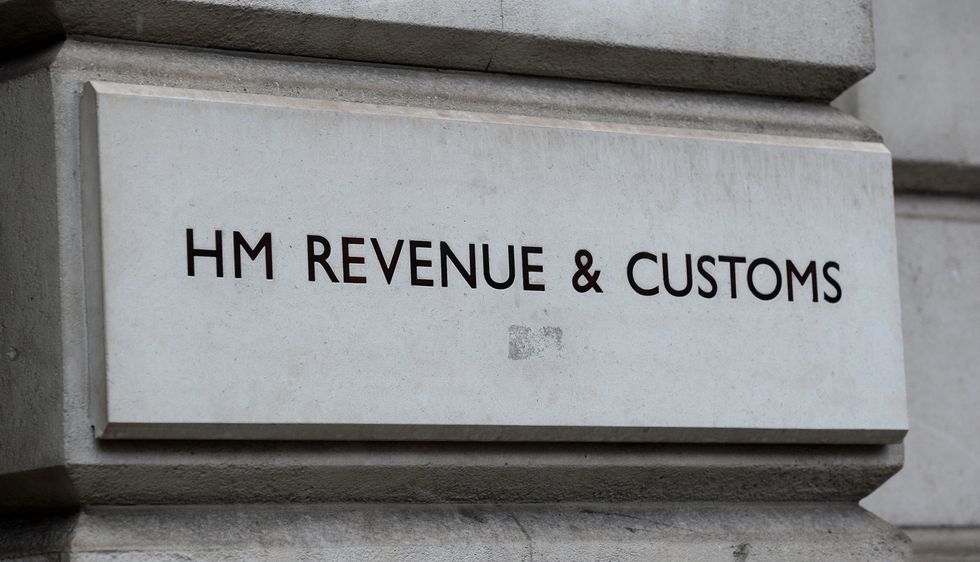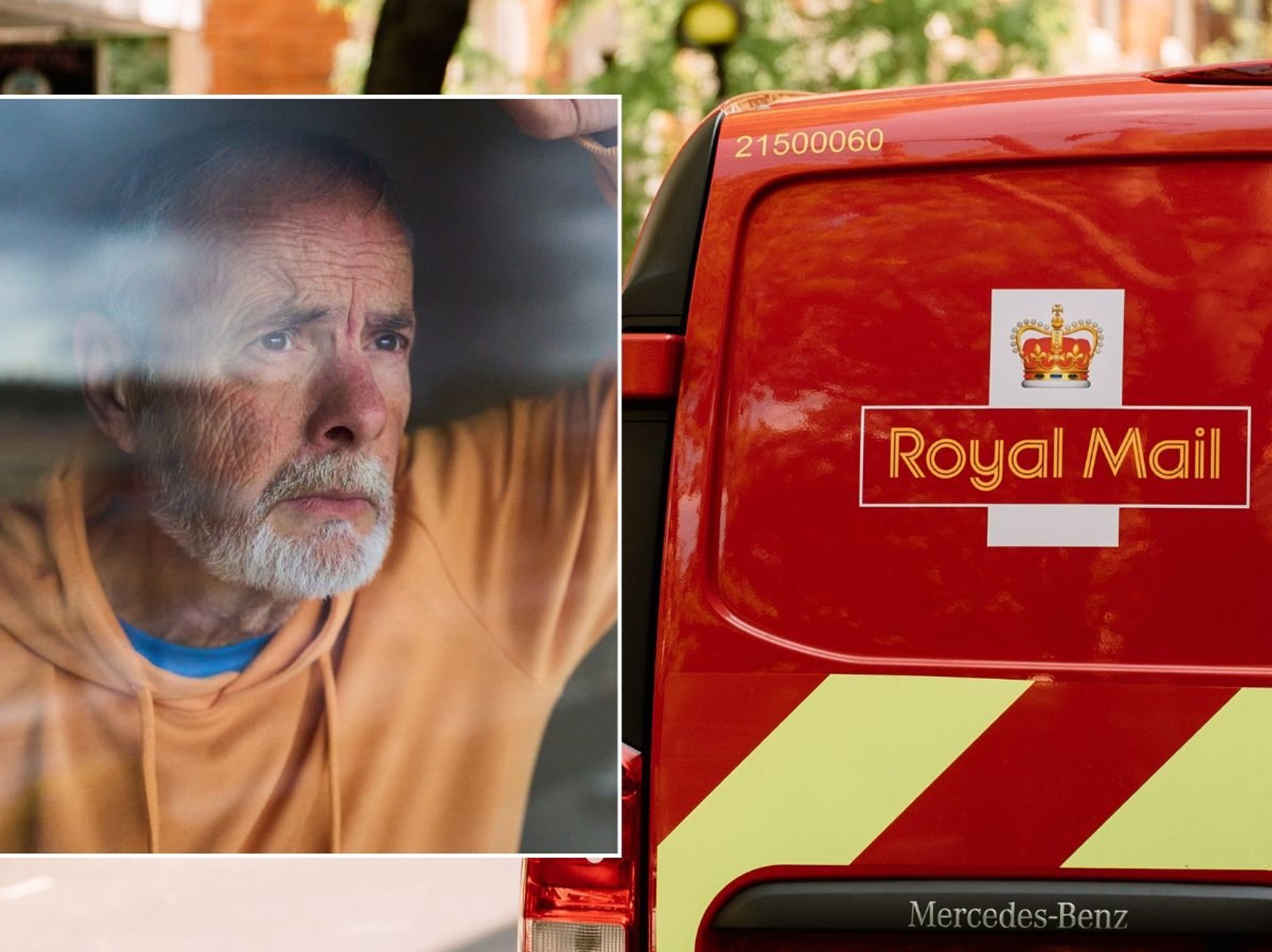Higher earners could be slapped with £7,000 HMRC bill under Rachel Reeves 'stealth tax'

Alan Miller fumes at the revelation that British taxpayers are forking out billions so migrants can receive freebies, such as gym memberships |
GB NEWS

Experts are warning the Chancellor could continue the current freeze on tax allowances to generate revenue for the Treasury
Don't Miss
Most Read
New research suggests that individuals earning higher salaries might see their income tax bills rise by more than £7,000 should the Government prolong the existing threshold freeze beyond its current 2028 endpoint to 2030.
Wealth management firm Rathbones Group has calculated the potential impact of extending the freeze on personal allowances and income tax bands, which has been in place since April 2022.
Fiscal drag occurs when tax thresholds remain at the same level over a period of time when either wages or inflation rise, resulting in workers being pulled into higher brackets.
The calculations reveal that an individual who earned £100,000 in 2022 would face an additional tax bill of £7,077 by 2030, assuming wages increase according to Office for Budget Responsibility (OBR) projections.
**ARE YOU READING THIS ON OUR APP? DOWNLOAD NOW FOR THE BEST GB NEWS EXPERIENCE**

Experts are warning stealth taxes could be implemented by the Chancellor
|GETTY
Those on £80,000 would see their tax rise by £5,635, whilst earners on £50,000 would pay an extra £4,632.
Even workers on more modest salaries would feel the impact, with those earning £35,000 facing a £926 increase.
These projections assume wage growth follows OBR forecasts through to 2029, with inflation at two per cent for 2030, and are based on tax rates outside Scotland.
Ade Babatunde, a senior Financial Planning Director at Rathbones, describes this as "taxation by stealth: the rates stay the same, but a bigger slice of your pay disappears into the taxman's coffers".
Do you have a money story you’d like to share? Get in touch by emailing money@gbnews.uk.

The Chancellor could keep tax thresholds frozen for longer than planned
| TREASURYThe freeze affects multiple thresholds including the £12,570 personal allowance and the basic, higher and additional rate boundaries at £12,571, £50,271 and £125,140 respectively.
Beyond income tax, frozen thresholds for capital gains, dividends and inheritance tax are similarly drawing more people into these tax nets.
Mr Babatunde recommends that households take action before the Budget, suggesting they "maximise ISA and pension allowances, and increase pension contributions" to help reduce the impact.
The wealth manager notes that concerns about potential wealth taxes have prompted more clients to seek guidance on minimising their tax exposure.
MEMBERSHIP:
- MAPPED: Full list of local authorities housing hotel migrants - how many are in YOUR area?
- REVEALED: The 32 seats that could parachute Nigel Farage into No10 as General Election petition hits 800k
- Think Reform has gone soft? Farage's migration blueprint will leave you eating your words - Ann Widdecombe
- REVEALED: Panic stations for Keir Starmer as migrant hotel fury sparks ballot box revenge in 20 seats
- Lucy Connolly's release is a step in the right direction, but the screws are turning – Matthew Goodwin
The revenue implications are substantial - the threshold freeze could generate £38 billion annually by 2029/30, representing nearly two-thirds of the current defence budget.
With defence spending set at £56.9billion for 2024/25, the freeze would raise funds equivalent to 67 per cent of this figure, which could be a significant boon for the Treasury finances
LATET DEVELOPMENTS:
 Recent tax changes have proven to be controversial | PA
Recent tax changes have proven to be controversial | PAExperts have previously issue a warning over a rumoured "stealth" tax on savings, with reports suggesting the Chancellor was considering a cut to the ISA allowance. Analysts note this would exacerbate the impact of fiscal drag.
Rajan Lakhani, a money expert at Plum, said: "Our research found that were the cash ISA allowance to be reduced, the most popular alternative option to hold this money is a cash savings account, followed by a current account rather than investing.
"Given the effects of fiscal drag from frozen tax thresholds, more people would then be at risk of paying tax on their savings as they exceed their respective allowances. It would be harsh to punish people for saving in given these circumstances.
"So, rather than diminishing cash ISAs, we’d ultimately like to see a boost to stocks & shares ISAs, perhaps by raising the £20,000 allowance, to encourage more people to invest without penalising cash ISA savers who prefer to take on less risk."
More From GB News










